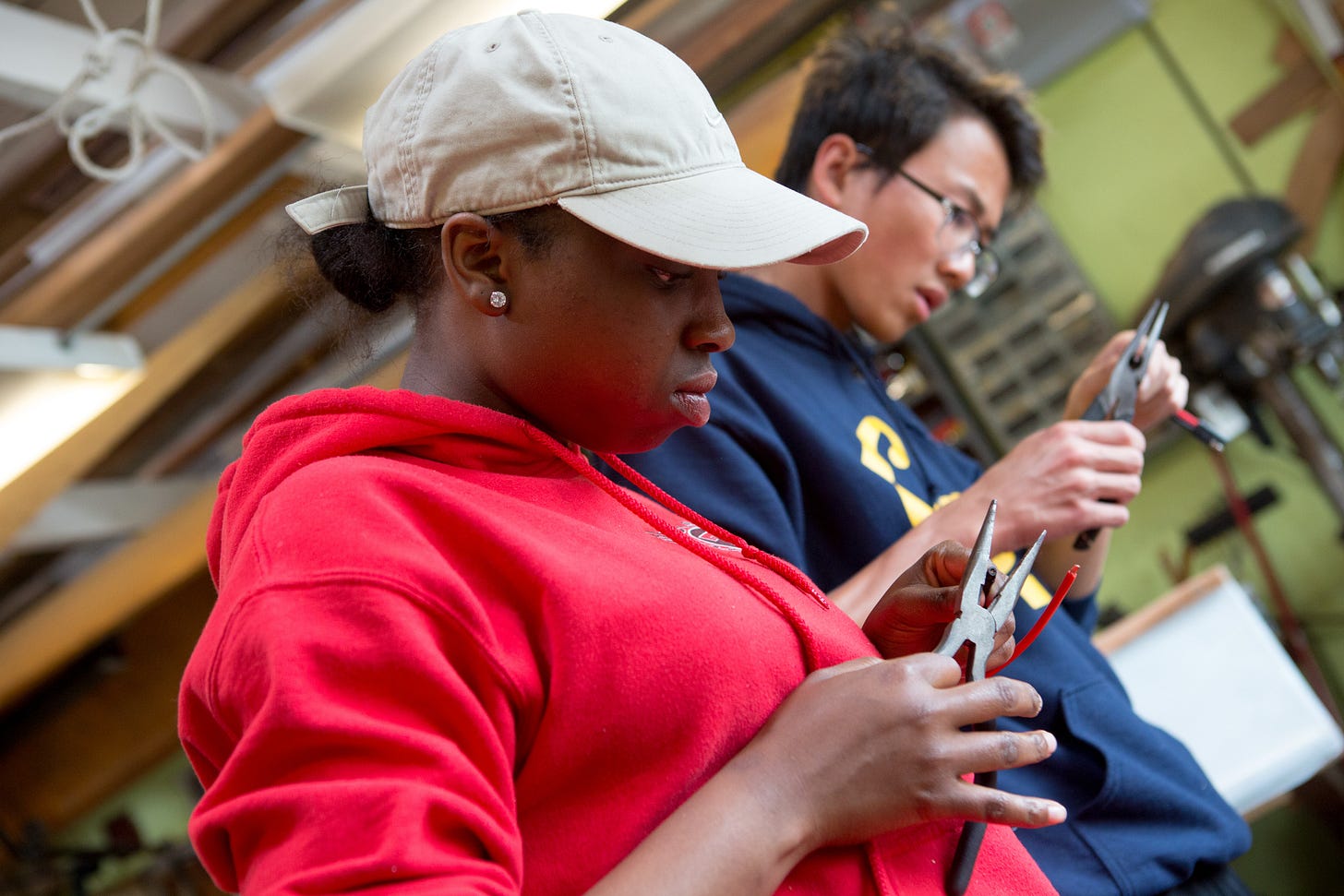THE WEEKS AHEAD
Wednesday, September 28, 2022, at 11:00 AM EST, AASA and CRPE are hosting a webinar on ESSER Spending and Evaluation Bright spots. Register here.
Wednesday, September 28, 2022, at 2:00 PM EST, CCSSO is hosting a webinar on How States are Using the ESSER Set-Aside to Lead on the Road to Recovery. Register here.
Monday, October 3, 2022, at 12:00 PM EST, the OECD is hosting Education at a Glance 2022: Implications for the U.S. register here.
FEDERAL EDUCATION POLICY
The Institute of Education Sciences announces three new research network grants addressing Covid-19 learning loss and impacts [IES].
The US Department of Agriculture announced that it would provide nearly $2 billion in additional funding to food banks and school meal programs for purchasing American-grown foods [USDA].
The US Department of Education announced statewide awards to family engagement centers [USED].
Secretary Cardona sent state education leaders a letter clarifying how they should prioritize funds from the Bipartisan Safer Communities Act in their school districts [K12Dive]:
A high student-to-mental health professional ratio.
High rates of chronic absenteeism, exclusionary discipline, referrals to the juvenile justice system, bullying/harassment, community and school violence, or substance abuse.
Students who recently experienced a natural disaster or traumatic event.
STATE EDUCATION POLICY
Colorado officials are using $10 million of Covid-19 relief money to pay for curriculum grants to large and small districts serving students with high needs [Chalkbeat].
A new CRPE report outlines the State of the American Student: Fall 2022, including a synthesis of research on the pandemic to date, as well as critical actions that state leaders can take to ensure pandemic recovery and reinvention [CRPE].
A new blog outlines state policymakers’ efforts to pass legislation that supports young students and the workforce that supports them [ECS].
COVID IN SCHOOLS
This week, Mayor Eric Adams in NYC announced they would no longer require vaccines for children participating in after-school activities [NY Times].
New revelations about federal relief spending emerge at a national conference [EdWeek]:
“Policymakers have advised against investing in recurring costs, like new personnel, that won’t be sustainable once the ESSER deadlines arrive. But when districts try to invest in stuff—as this administrator put it—it’s a lot more expensive than usual, or it may never arrive.”
ASSESSMENT AND ACCOUNTABILITY
Passing rates fell nine percentage points across Oregon school districts [OPB].
New York State failed to widely release test results to the public, later reversing course [Chalkbeat].
Pennsylvania students will not be required to pass the basic-skills tests in reading, writing, and math to enroll in teacher preparation programs for at least three years [PA].
TEACHER WORKFORCE
Beth Hawkins at the74 covers the state of special education teachers now and historically; big idea: they are perennially in short supply [The74].
Through the COVID Relief Data Project, CCSSO released a brief on ESSER spending decisions of states who are part of their High-Quality Instructional Materials and Professional Development (IMPD) Network [EdWeek].
Chad Aldeman writes “on a per-student basis, schools today employ more teachers and staff than they’ve ever had” [The74].
EQUITY IN EDUCATION
New Wisconsin legislation requires teachers to teach about the Holocaust [WI].
Attending a co-taught classroom improves test scores for students with and without disabilities, especially in math [Ed Next].
STUDENT AND FAMILIES
The US Department of Health and Human Services released a checklist of strategies and guidance for state Medicaid agencies assisting school systems [K12Dive].
A new poll finds that more than one in four California parents has switched their child’s school during the pandemic, with most transferring from traditional public to charter schools [The74].
ICYMI
The House Education and Labor Committee held a hearing on social, emotional, and mental health and development. Watch the recording and read the witness testimony here.
Dr. Christine M. T. Pitts serves as Director of Impact and Communications at the Center on Reinventing ic Education, overseeing policy leadership and external affairs. A teacher and researcher by training, she previously led research and evaluation for Portland Public Schools and served as Policy Advisor at NWEA, overseeing state and federal policy to advance equity and innovation in educational assessment. Follow her on Twitter and Instagram @cmtpitts.









